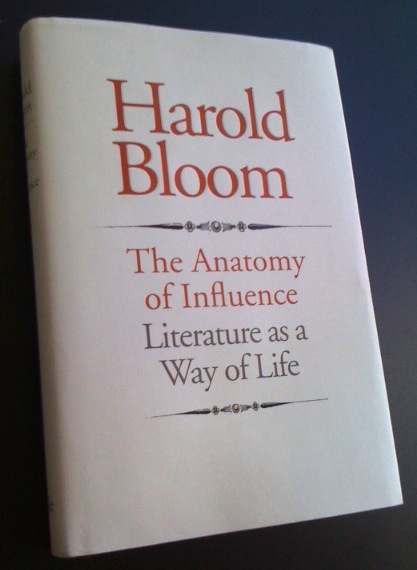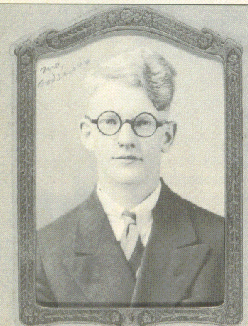
I have just read Harold Bloom’s most recent book, The Anatomy of Influence: Literature as a Way of Life (2011). This is Bloom at his finest. In many ways, it is the last statement of a living giant – a characterization he in fact makes a point of relaying to the reader who may not already know this. Bloom opens his book by acknowledging Frye’s influence on him:
I do not recall reading any literary criticism, as opposed to literary biography, until I was an undergraduate. At seventeen I purchased Northrop Frye’s study of William Blake,Fearful Symmetry, soon after its publication. What Hart Crane was to me at ten, Frye became at seventeen: an overwhelming experience. Frye’s influence on me lasted twenty years but came to an abrupt halt on my thirty-seventh birthday, July 11, 1967, when I awakened from a nightmare and then passed the entire day composing a dithyramb, “The Covering Cherub; or, Poetic Influence.” Six years later that had evolved into The Anxiety of Influence, a book Frye rightly rejected from his Christian Platonist stance. Now, in my eightieth year, I would not have the patience to reread anything by Frye, but I possess almost all of Hart Crane by memory, recite much of it daily, and continue to teach him. (3)
As readers here likely already know, I have published an article on Northrop Frye and Harold Bloom’s relationship and how they react to one another. In my article, I demonstrate how Bloom was theorising influence through a series of letters to Northrop Frye. However, unlike earlier critics of the relationship, I also argue that Frye was influenced by Bloom. and that we must now begin to think about what it means to have influence, in other words: the anxiety of influencing.
Professor Bloom is at his most interesting in this volume, particularly the first section as he comes to terms with his entire project of influence:
More than any other I have written, this book is a critical self-portrait, a sustained mediation on the writings and readings that have shaped me as a person and a critic. Now in my eightieth year, I remained gripped by particular questions. Why has influence been my obsessive concern? How have my own reading experiences shaped my thinking? Why have some poets found me and not others? What is the end of a literary life? (30)
This is an interesting observation from a critic reflecting on his lifelong obsession with influence. Bloom takes account of the situation of literature and the academy in the twenty-first century, and while he now seems like something of a relic, there is still much to be said about the ways that we teach literature. What are our roles as teachers of literature? Bloom offers a tentative answer:
All literary influence is labyrinthine. Belated authors wander the maze as if an exit could be found, until the strong among them realize that the windings of the labyrinth are all internal. No critic, however generously motivated, can help a deep reader escape from the labyrinth of influence. I have learned that my function is to help you get lost. (31)
Frye’s readers will surely find Bloom’s book of particular interest, not merely because of the relation between the two, but because it is positioned as a final statement on the problem of influence. And, in many ways, Bloom returns to the powerful critic he once was and evidently continues to be.

